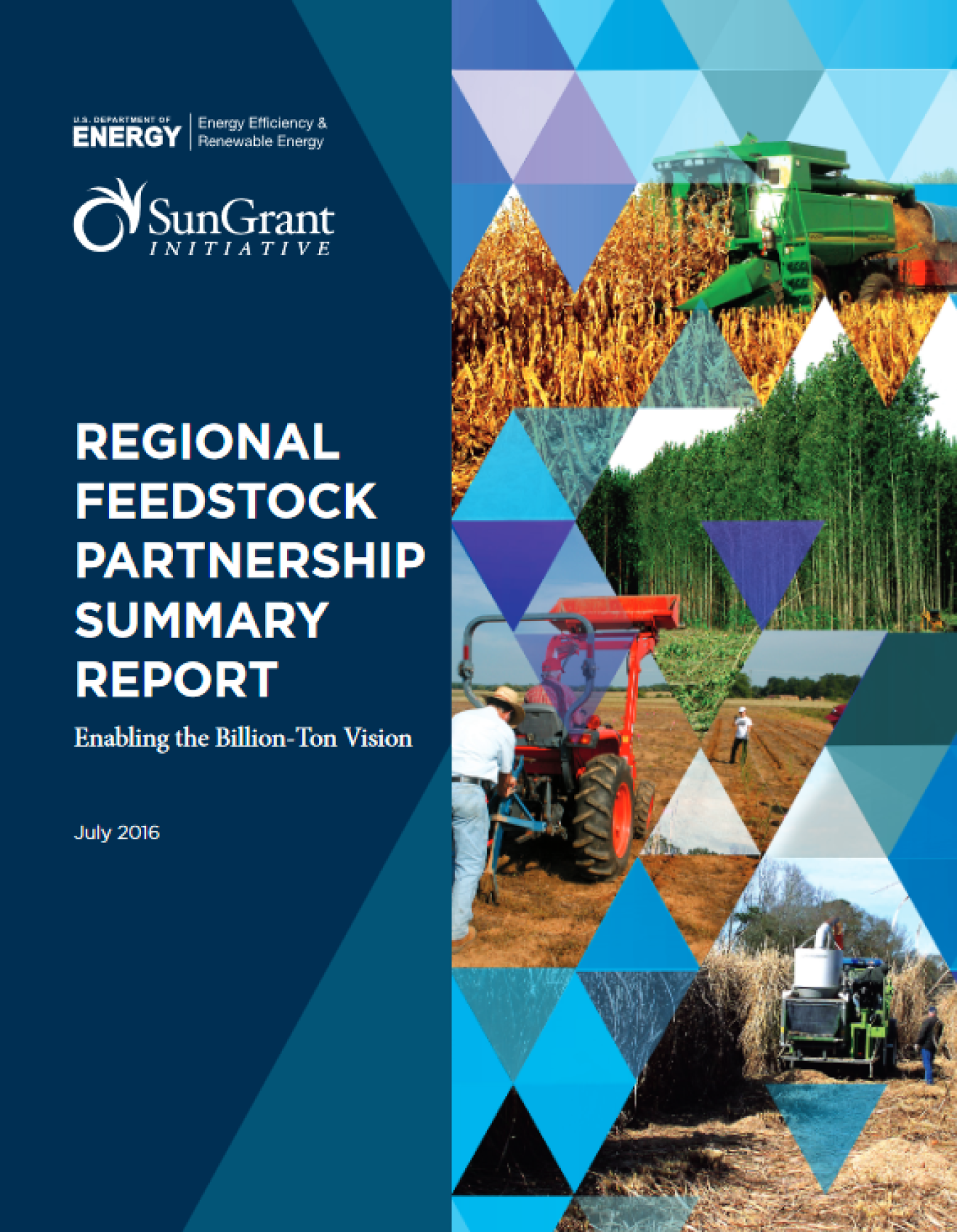The Regional Feedstock Partnership (the Partnership)—a multi-institutional collaboration of the U.S. Department of Energy (DOE), the U.S. Department of Agriculture, representatives from land-grant universities, and industry—was first established to...
December 16, 2016
The Regional Feedstock Partnership (the Partnership)—a multi-institutional collaboration of the U.S. Department of Energy (DOE), the U.S. Department of Agriculture, representatives from land-grant universities, and industry—was first established to address issues associated with the development of a sustainable and projectable supply of feedstocks in the United States. Through its work during the past seven years, the Partnership has provided critical data to assist in validating the projections of the nation’s ability to produce at least 1 billion tons of cellulosic feedstocks annually by the year 2030. The Partnership has published a report to summarize its accomplishments from 2008–2014. DOE’s Bioenergy Technologies Office (BETO) partnered with the Sun Grant Initiative and Idaho National Laboratory to co-author this report.
The report, entitled Regional Feedstock Partnership Summary Report: Enabling the Billion-Ton Vision, includes appendices describing study findings for nine different energy crops within the five Sun Grant regions (Northeast, North Central, Southeast, South Central, and West), and containing a list of the more than 400 scientific presentations and publications produced by the Partnership.
Researchers from the Partnership used both computer models and robust, long-term field data to draw some vital conclusions about agronomics, the correlation between management practices and feedstock quality, and commercialization developments for energy crops. For example, they compiled data from 78 research sites and identified new commercial poplar varieties with traits such as increased yield or drought resistance, and created corn stover harvesting guidelines that minimize soil erosion and retain soil carbon.
A wide range of stakeholders will benefit from the Partnership’s work—farmers can gain further knowledge about energy crops, companies building biorefineries that rely on corn stover now have more yield-specific information, and students trained through the Partnership have the knowledge to become a ready workforce for biomass production, logistics, and conversion.
In addition, the Partnership has engaged the nation’s leading researchers to populate the Bioenergy Knowledge Discovery Framework (KDF) with new data on energy crop yields. The Bioenergy KDF is an online collaboration toolkit and public data resource that provides access to the latest bioenergy research. Modeling crop yields reduces risks associated with the commercial planting of dedicated energy crops, and can be useful for farmers nationwide as they plan their crops in future years. Because of the information gained through the Partnership, many of the projections set forth in the Billion-Ton Study that were once thought by some to be optimistic have been proven reasonably realistic.
This work is part of BETO’s Feedstock Supply and Logistics Program, which develops technologies to provide a sustainable, secure, reliable, and affordable biomass feedstock supply for the U.S. bioenergy industry, in collaboration with DOE and other key stakeholders. The valuable work completed by the Partnership supports the sustainable and renewable production of biofuels and chemicals, and a growing, vibrant bioeconomy.

